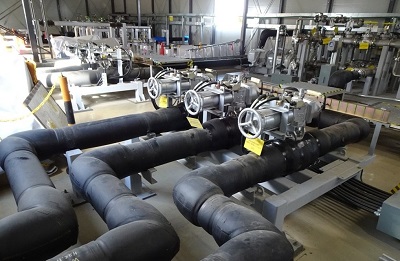Tokyo, (Asian independent) The Japanese government on Tuesday announced its decision to begin releasing nuclear-contaminated wastewater from the crippled Fukushima Daiichi Nuclear Power Plant into the ocean on Thursday, weather conditions permitting.
Despite raging opposition both at home and abroad, Prime Minister Fumio Kishida announced the controversial decision following a ministerial meeting held on Tuesday morning, reports Xinhua news agency.
Last month, the International Atomic Energy Agency (IAEA) also gave its final approval to the discharge, saying Japan’s release plan met international standards.
Representatives of the country’s fishing industry on Monday reiterated their firm opposition to the ocean discharge plan during Kishida’s meeting with the head of Japan’s national fisheries federation in hopes of gaining understanding.
Hit by a magnitude-9.0 earthquake and an ensuing tsunami on March 11, 2011, the plant suffered core meltdowns that released radiation, resulting in a level-7 nuclear accident, the highest on the International Nuclear and Radiological Event Scale.
The plant has been generating a massive amount of water tainted with radioactive substances from cooling down the nuclear fuel in the reactor buildings, which are now being stored in about 1,000 storage tanks.
In 2015, the Japanese government and the Tokyo Electric Power Company, the operator of the plant, made an agreement with fisheries cooperative associations of both Fukushima prefecture and the nation that they will not proceed with any wastewater disposal “without the understanding of relevant parties”.
A total of 88.1 per cent surveyed expressed concerns over the government’s plan to discharge treated radioactive wastewater into the ocean, as the disapproval rate of the Kishida-led cabinet rose to an eight-month high, according to the latest opinion poll conducted by the national news agency Kyodo.
Although the IAEA has said Japan’s plan for the water discharge would have a negligible impact on the environment, neighbouring countries, including South Korea and China, worry that the water could contaminate seafood.
Japanese fisheries groups have also voiced opposition to the planned water release, fearing that it could further erode the reputation of seafood from Fukushima and nearby areas.








